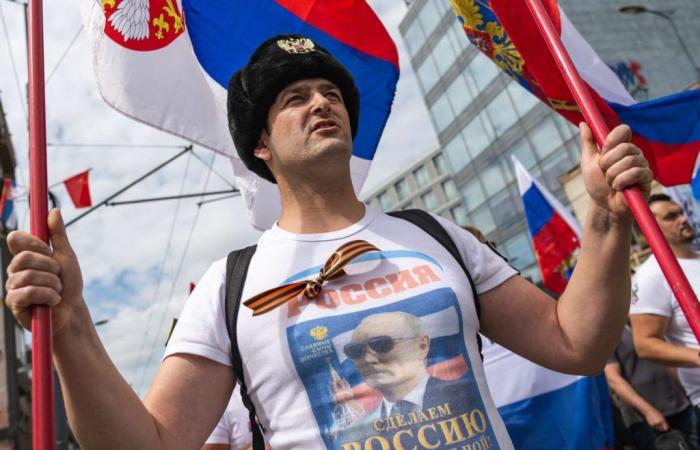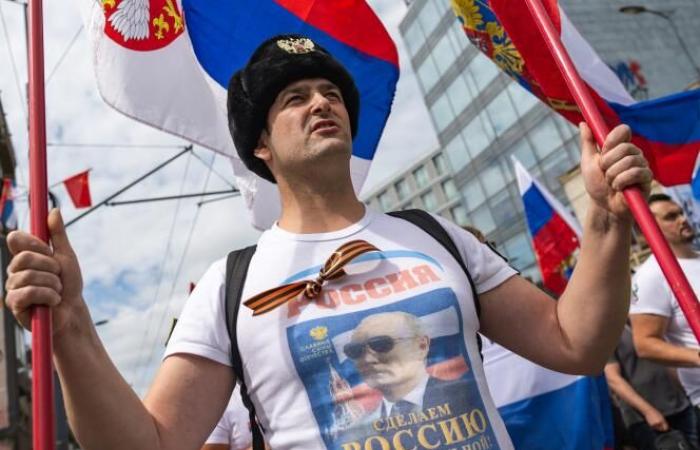In Georgia, hunting for “foreign agents” is open. The controversial law on foreign influence was enacted on June 3 despite the mobilization of hundreds of thousands of protesters. The text, modeled on a 2012 Russian law, requires any organization receiving more than 20% of its funding from abroad to register as a “pursuing the interests of a foreign power”. Under cover “transparency”it aims to silence civil society and independent media in this former Soviet republic in the Caucasus, as was the case in Russia.
Read also | Article reserved for our subscribers In Georgia, the “Day of Treason”
Add to your selections
This legislation is emblematic of the authoritarian turn taken by Georgia and its geopolitical shift. Close to the Western camp since 2003, the country is now turning away from Europe and moving closer to Russia, despite the fact that its troops have occupied 20% of Georgian territory since the 2008 war with Moscow. The European Union (EU), which granted Georgia official candidate status in December 2023, calls on Tbilisi to repeal the law. During the European summit in Brussels, the On June 27 and 28, the Twenty-Seven thus denounced a “backtrack” Who “de facto leads to a halt to the accession process”.
Georgia is not alone in passing this legislation. Concomitantly, Kyrgyzstan, another former Soviet republic, the pro-Russian separatist authorities of Abkhazia, Georgia, Hungary and Slovakia have also adopted or are attempting to adopt similar laws, all inspired by the law Russian on “foreign agents”.
Read also | In Kyrgyzstan, the arrest of eleven journalists illustrates the regime’s authoritarian turn
Add to your selections
“Even in Bosnia and Herzegovina [dans l’entité séparatiste serbe prorusse, la Republika Srpska] and in Serbia, similar legislative efforts have been proposed, indicating a broader strategy”notes Tomi Huhtanen, executive director of the Wilfried Martens Centre for European Studies, the think tank of the European People’s Party (EPP), in a note published on May 31. “By promoting foreign agent laws through its proxies and like-minded actors, Russia seeks to weaken civil society, reduce Western influence and support for democratic movements in these regions.”warns the analyst.
“Resurrecting the Empire”
This proliferation of laws on Russian-style foreign agents was at the heart of an information meeting, on June 20 in Washington, of the Commission on Security and Cooperation in Europe (Helsinki Commission), an American government agency supporting human rights. the man. This warns: these laws are “an authoritarian tool to repress civil society” and often target “NGOs supported by the United States and Europe, accused of promoting ‘foreign values'”.
You have 70.55% of this article left to read. The rest is reserved for subscribers.







